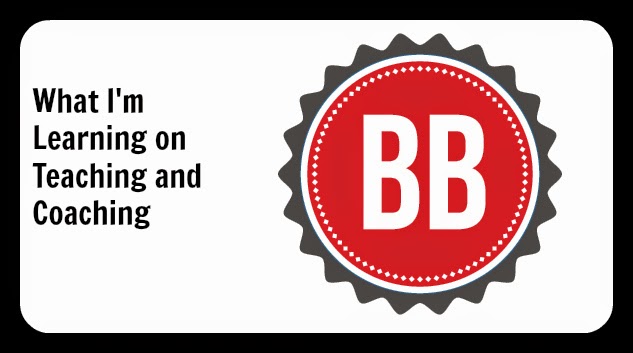Quiet - Susan Cain
Ever wondered how to connect with the introverts on your team? Or wondered why some people just aren't that into group work in a classroom? Or wondered if you have some introverted tendencies yourself as a coach or teacher? This is the book for you!
Quiet is illuminating in the sense that it give a powerful voice to those who don't always feel that using theirs is the most necessary idea. As an extrovert, it certainly helpful me understand about how to encourage the hard work, idea generation and focus that introverts bring to the table with others. We just need to shut up, give those introverts time to speak and then listen!
This was brought to my attention by a former athlete of ours at Queen's who self identifies as an introvert and it was on my list for a long time before I finally got to it. All of a sudden I feel more equipped to work with and to help introverts harness the strengths of their default operational mode. The world in general needs to recognize the creative ability and the depth of investigation that introverts can go to when given the opportunity!
And, if you're into TEDtalks - here's Cain's called "The Power of Introverts."
To Sell is Human - Daniel Pink
It's no secret that I'm a fan of Pink's writing and was thrilled to see him speak in Ottawa back in fall 2011. His latest book published in early 2013, To Sell is Human, is another winner. He claims that 8 of 10 of us workers are salespeople. It's true that teachers and coaches are salespeople in that we sell ideas, we sell and help build the concepts of self-confidence, passion for learning, dedication, teamwork and all those things that allow athletes and students to be the best people they can be once they leave our programs or schools.
Let's face it - we can't get buy in from our athletes and students if we can't sell the ideas or team culture that we create. Pink's book can help us do it more effectively.
Smarter Than You Think - Clive Thompson
My airport treat is a copy of Wired magazine whenever I am travelling. This is where I discovered Clive Thompson's clever and informative reading and was fortunate to receive the book as an unexpected Christmas gift.
Thompson's argument is that technology is making us smarter and may actually end up rewiring our brains to make us even "smarter." There are plenty of people who say that the information age and it's advancements will set us up for failure but Thompson makes the case for technology in all it's new and unknown ways. In a sense, the book doesn't seem to connect at all with coaching and might seem that there are lose links to teaching. However, for teachers, this book is a must-read and there is an entire chapter dedicated to the technology movements in schools. Also, it just asks readers to thoughtfully consider that change might just be a good thing...and that is what every teacher and coach should encourage.
Selling the Dream - Ken Campbell with Jim Parcells
While I didn't find the information in the book earth-shattering, Campbell does come up with some impressive numbers and statistics to support his ideas on hockey at a grassroots level in Canada. The message here is that we're in big trouble if we keep doing what we're doing. Money is what drives hockey development in Canada and mainly those middle to high income families will be the ones who can afford to help develop a raw but possibly talented teenager. Lower income families and those who are from outside major urban areas will be shut out of the development system. And some Canadian parents are making mind-boggling financial and life decisions around the minute possibility of their kids either getting a hockey scholarship or making the NHL or national teams.
Honestly, I don't know if I would have finished it if I hadn't wanted to use the book as a part of my Sport & Society class at SHS. However, it would be a great primer for those just starting out in the hockey machine or those who may want to justify avoiding it (and putting their kids in mini-rugby instead). Oops, just can't help to advocate for fun, games and great LTAD!
The Power of Habit - Charles Duhigg
I really enjoyed the organization of Duhigg's book and the research he put into each chapter. First, he starts with how some people have changed their own habits and then he explains exactly how his Cue-Reward-Routine concept makes it eas(ier) to make changes to habits. If only he talked about cookies less, I may have not craved them so much when I was reading!
And, there is a teacher's guide (thanks, Charles!). I'm working on putting this into our Grade 12 College English at SHS since the awareness about habits is not always as obvious for teenagers as one might think. We all have habits we enjoy and that we'd really rather change. Seems reasonable to talk about it in a classroom and maybe combine the use of technology into helping us make a positive beahviour change...maybe we can use both Thompson's and Duhigg's expertise at once. By the way, they are both highly engaged in Twitter and will have a chat if you have something interesting to comment on or to ask.
I think that's it - hope this is informative and that you can find something else interesting to read in the near future that helps to make you that much better in your chosen field.
